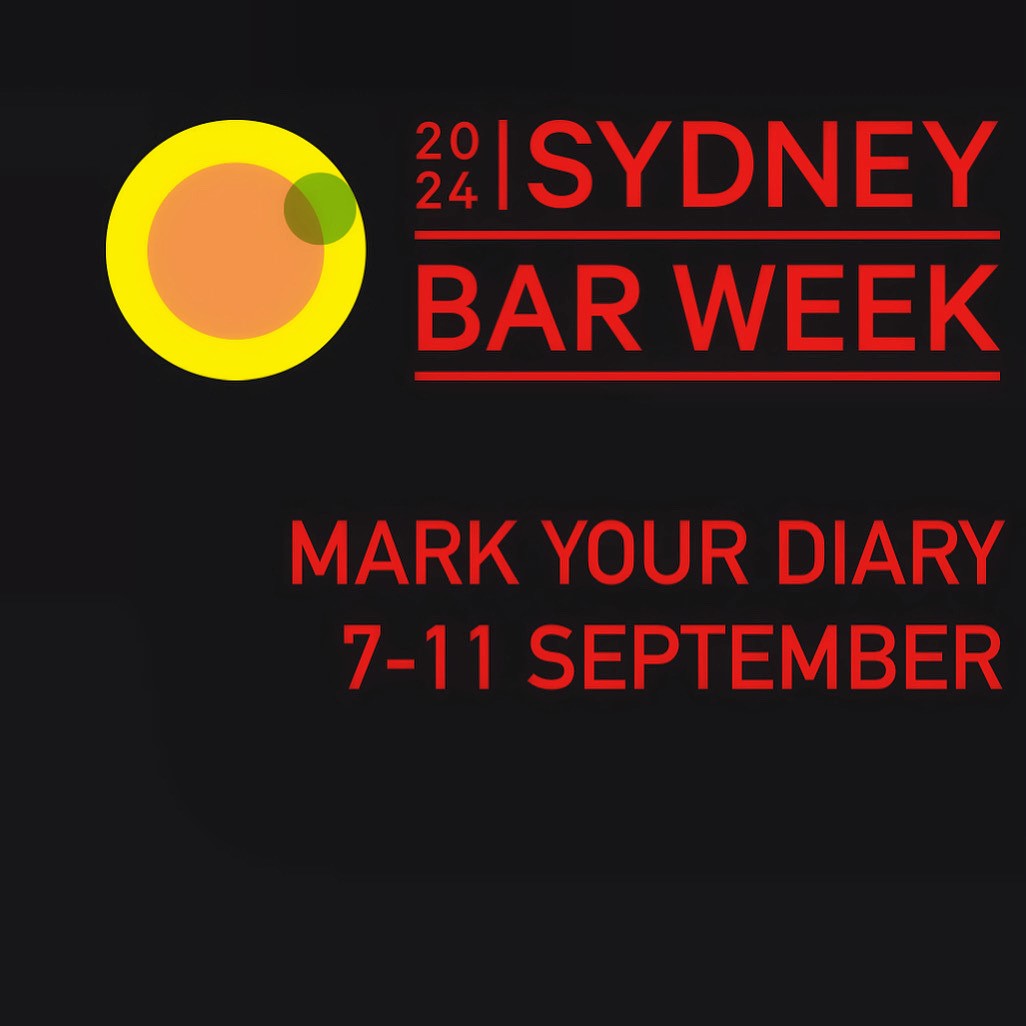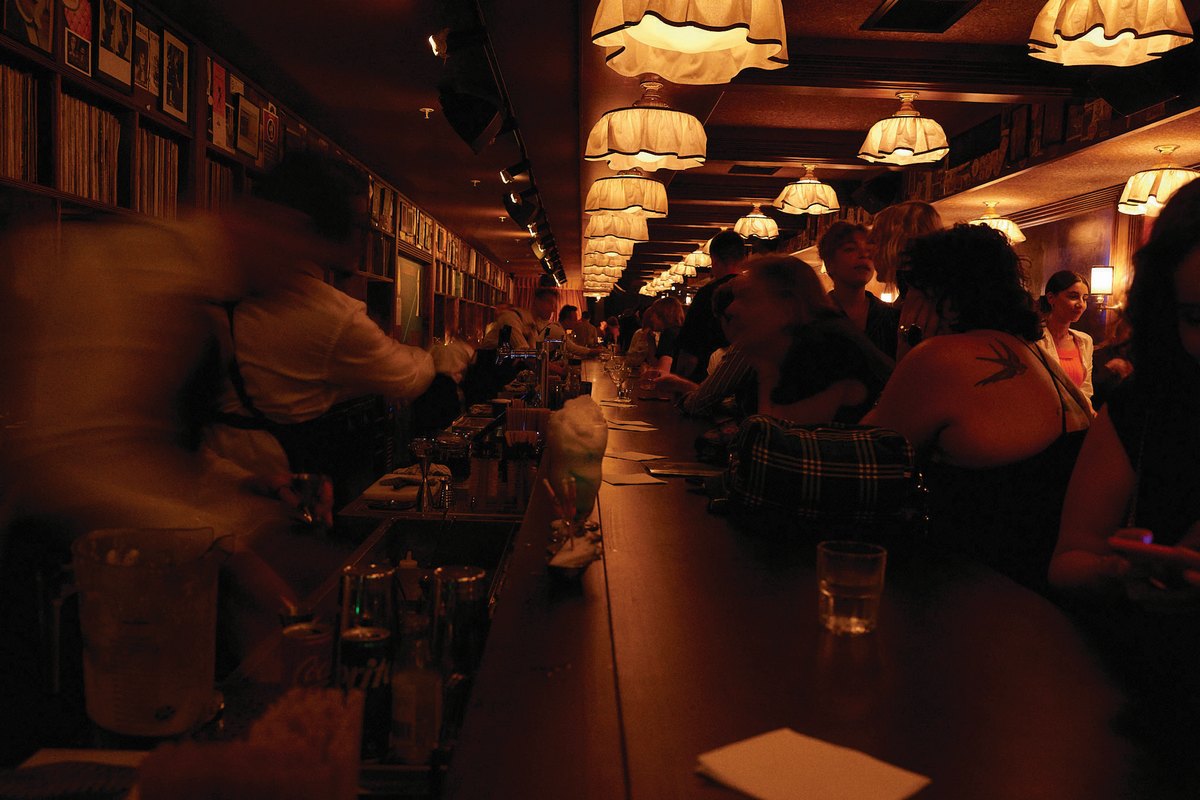
Interview by Dave Spanton @mrdavespanton
Venue images Andrea Veltom, Portraits by Christopher Pearce
In 2023, Swillhouse undertook the massive task of opening two new venues. The first, the long-awaited Le Foote, a pub/restaurant/wine bar channelling all things Mediterranean in The Rocks which opened back in June. And then, just six months later, they opened the doors to the vinyl shrine, The Caterpillar Club, a sexy basement bar on Pitt Street. All of this happened while their world-class venues – The Baxter Inn, Shady Pines, Alberto’s and Hubert – kept delivering the same top-notch service and ambience we have come to expect from Swillhouse.
For the first time ever, we managed to get the Executive team together for an interview with Bartender magazine founder David Spanton, to find out what it takes to run a hospitality business with such high standards and under the pressure of immense growth.
Please note: interview has been lightly edited for clarity and space.
The Executive Team
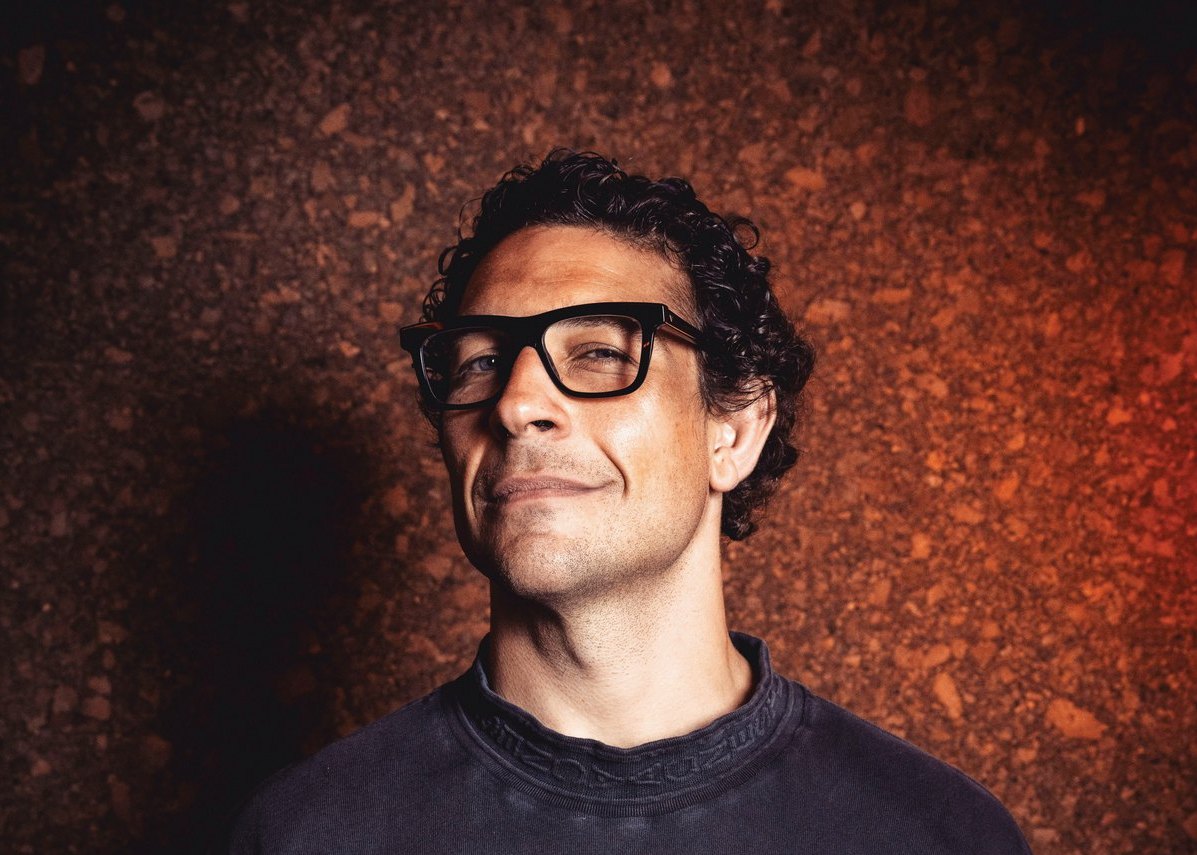 Anton Forte, CEO
Anton Forte, CEO
He handles overall vision, creative direction, big deals, site acquisition, planning and venue design.
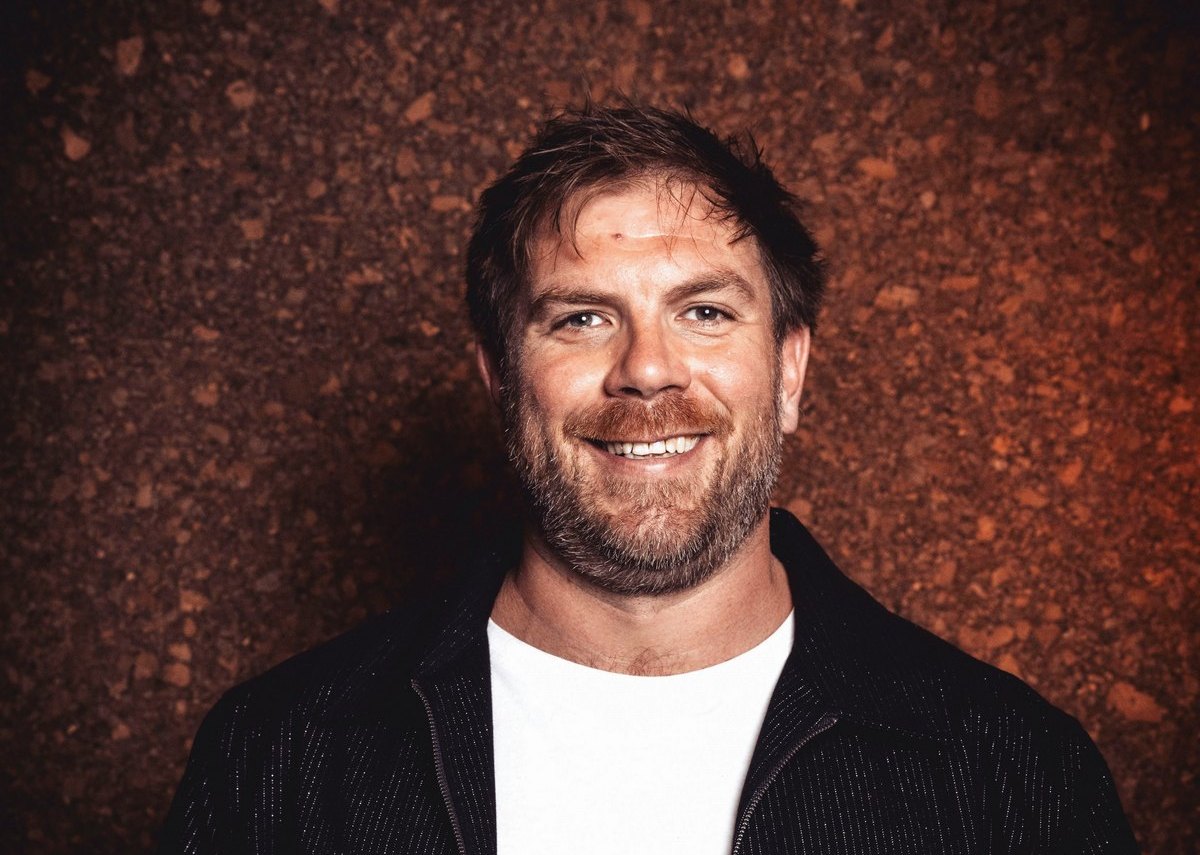 Toby Hilton, Swillhouse General Manager
Toby Hilton, Swillhouse General Manager
The integrator for the executive team, removing obstacles and barriers and illuminating the way forward, oversees all legal and compliance-related issues, executes the overall business plan and is head of finance too; slow down!
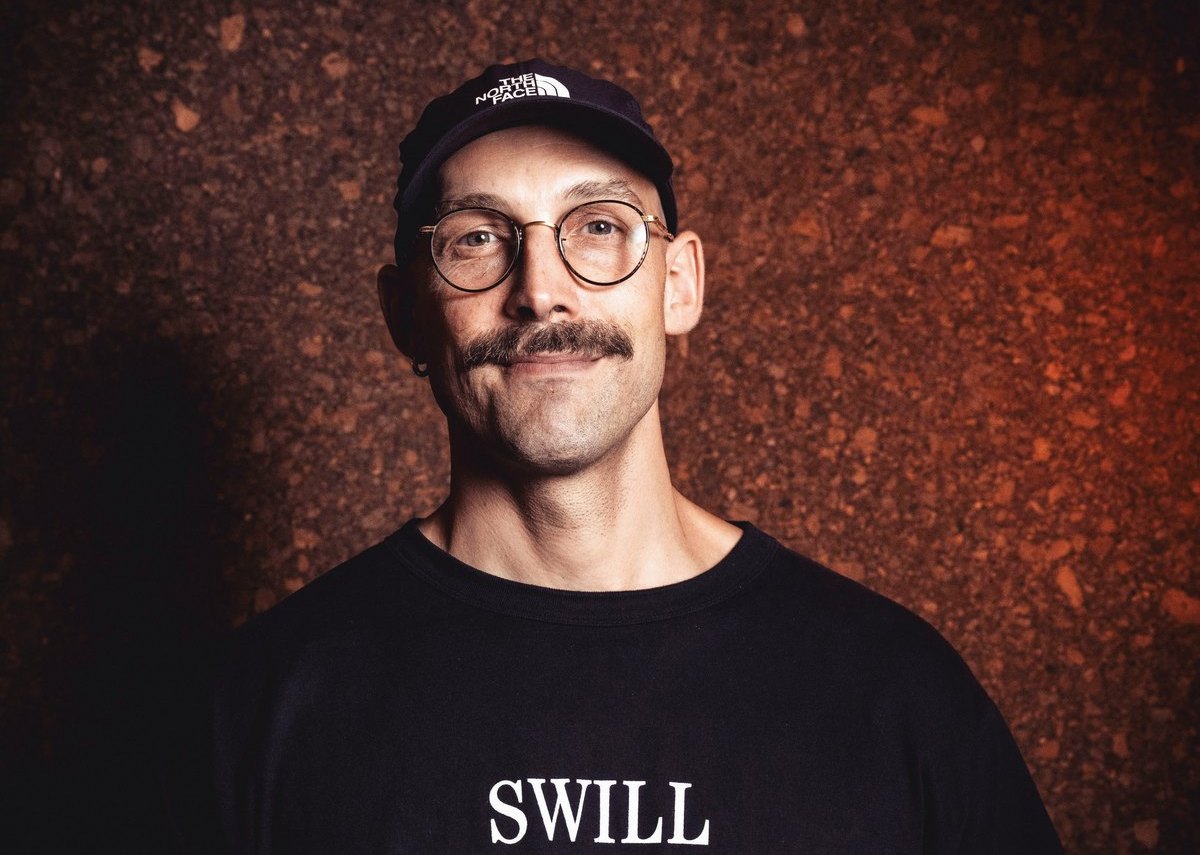 Stefan Forte, Director of Operations
Stefan Forte, Director of Operations
Oversees all products (F&B), guest experience, systems and operations, plus contractors and suppliers.
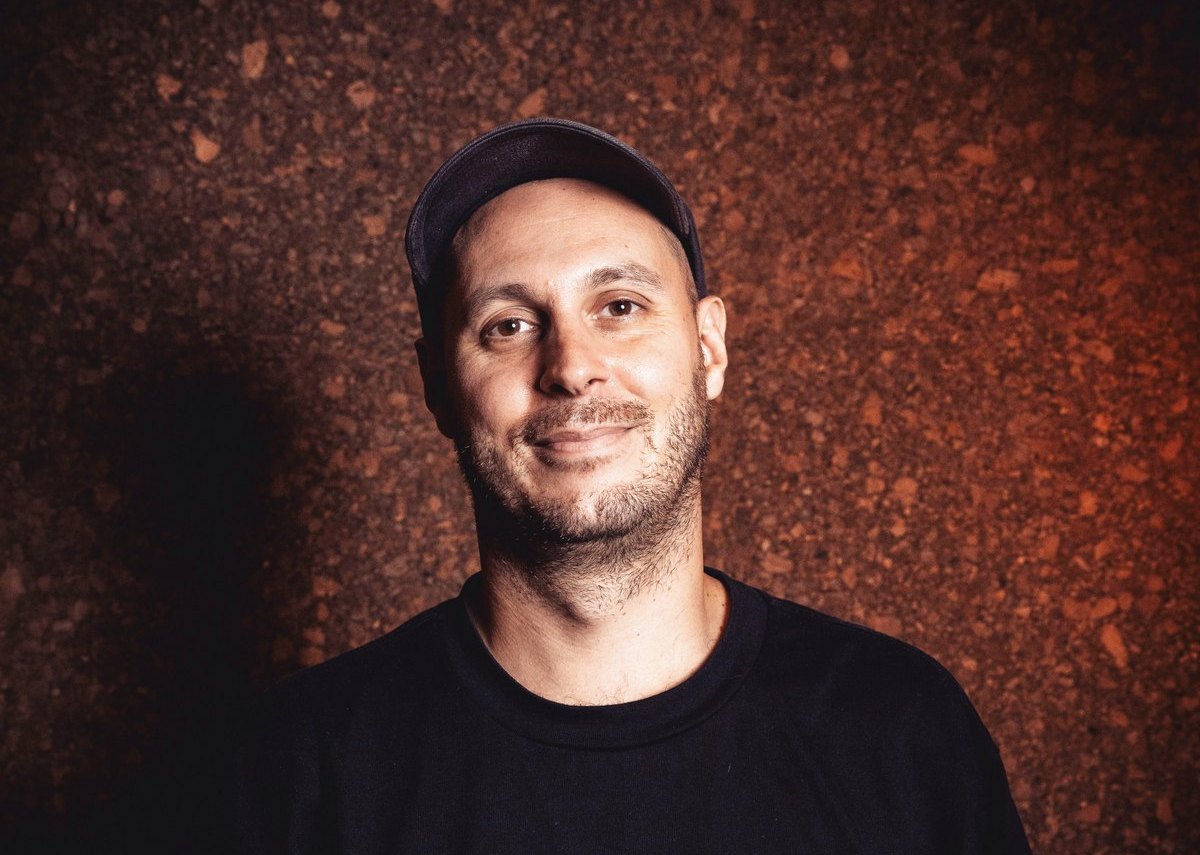 Anthony Moore, People and Culture
Anthony Moore, People and Culture
Leads all recruitment, training, staff development and performance management.
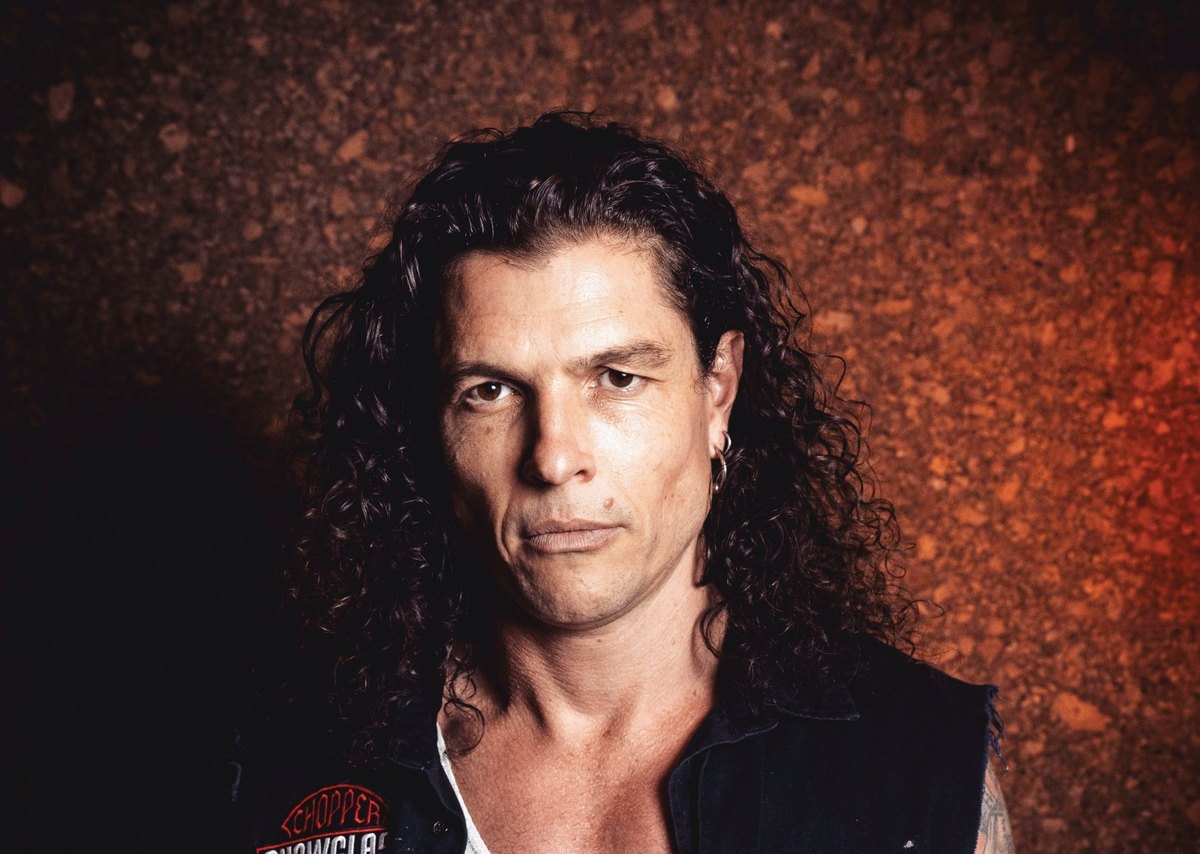 Jordan McDonald, Creative Director
Jordan McDonald, Creative Director
Handles creative direction, events and entertainment, PR, and strategy.
The Interview (Questions by Dave Spanton)
Can you tell us a little bit about how this new venue The Caterpillar Club came to be?
Jordan: In essence, it’s a music bar; it’s also a celebration of beautiful design and art and late-night revelry.
Anton, your venues cover a wide range of themes/styles from a Honky Tonk bar to French, Italian and Mediterranean Restaurants to the legendary dive bar that was Frankie’s. What drives you to do this?
Anton: I think that we like to create venues that we want to visit and go to. I feel like we create them because they don’t exist in Sydney, and they are our hospitality fantasy places that we want to go to. So that’s kind of why the diversity. If we were just recreating the same product over and over, it wouldn’t be very inspiring for us, so I think it’s seeing something that we love that doesn’t exist here and a place that we really want to go to. It’s really trying to create that magical atmosphere.
“If we love it and it’s authentic, then people will tap into that, and they’ll tell their friends, and they’ll do the marketing for us.” – Jordan
What comes first? Is it the idea or the site? Or does it change based on the venue?
Anton: I think we have ten, 20, 100 floating ideas, some of them which we are more passionate about than others and then it doesn’t take long to find the right place or a place that inspires us. So as soon as we start looking, we think, what would work here? Is this interesting? Is it creative? Does it tick all those boxes? Will it be profitable? Is it going to be sustainable? And do we think it will work? And from there, we develop the concept. And that concept will continue to be developed from when we take on the lease to when we open. We constantly are tweaking and refining, and working on it.
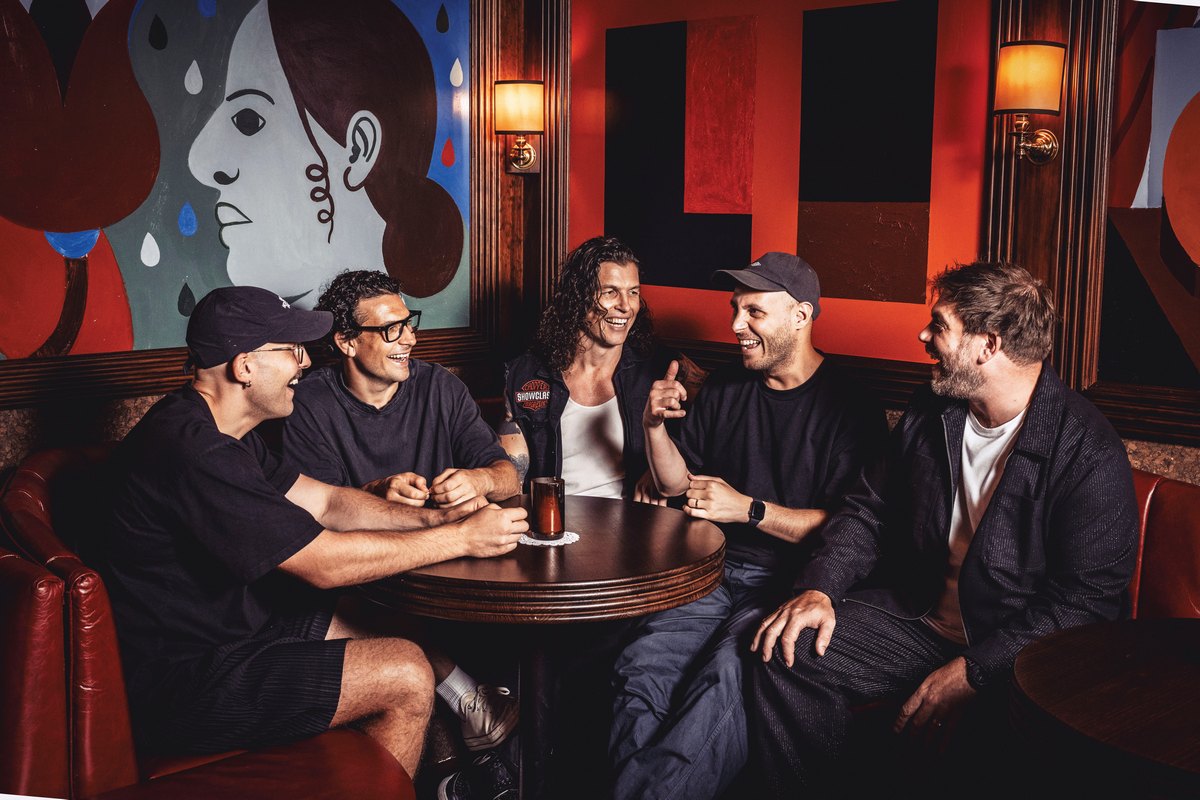 Toby, you have to deal with a lot of different stakeholders with what you do. How do you keep a cool head and manage all the egos and personalities?
Toby, you have to deal with a lot of different stakeholders with what you do. How do you keep a cool head and manage all the egos and personalities?
Toby: I’ve always been a relatively patient person – working between two Forte brothers you kind of have to be. In saying that, our whole team is very good and very passionate about what they do, they are experts in their fields, and someone just needs to help pull all that together sometimes.
Stefan, you have a reputation for impeccable service. Can you give me a rough idea of how many staff you have and how you maintain those high levels?
Stefan: I think at Caterpillar Club we have about 60. Altogether, across Swillhouse, it’s just under 200… no, 350.
Anton interjects: No, it’s closer to 400.
It’s a lot! Stefan, what are your expectations from your staff from the moment a customer books a table, walks in the front door, have their dinner until they walk out. What do you expect the staff to deliver?
Stefan: I think one of the most important things that Swillhouse has always done is that we greet people in a very beautiful manner. From that to delivering impeccable service over the bar or to the table. The whole environment is designed to deliver a beautiful customer experience.

Is there any feedback that you look for from those customers?
Stefan: Yeah, we get feedback from reviews and just on-the-night feedback. The management team is really good at gauging if someone hasn’t had a good time and they don’t enjoy their drink or their meal, then we are able to rectify that pretty fast. Identifying that is a skill we really have.
From my experience in your venues, there is a lack of arrogance from the top down. It’s not a ‘too cool’ attitude in the venues. Anthony, from a recruitment perspective what are some of the things you look for when you’re hiring?
Anthony: A good attitude. A sense of fun, really. And solutions-based people, where nothing is too much trouble. They walk into the interview with a smile, and it starts off as a casual conversation. You can think of an interview and a dinner table as a similar scenario. It can sometimes be a very awkward experience, and it shows a lot about someone how much they can relax and get to know you within 30 seconds; that’s the same as a guest experience. So the interview is pretty much the first table that you’re serving.
In terms of core values that Swillhouse has? Do you have a structure like that?
Jordan: (jokes) We’re corporate baby!
Anthony: We have three and they are drilled into the teams and they are the first things we mention in an interview. ‘Devoted Hospitality’ is number one, ‘Originality’ is number two and the third one is ‘Good Times’. There is a lot of detail that underpins these values and a why and how we got there. So, we would say to Stefan how do we ensure that staff are giving the smile and that they understand the why and the direction we want to take the company.
“I’ve always been a relatively patient person – working between two Forte brothers you kind of have to be. In saying that, our whole team is very good and very passionate about what they do, they are experts in their fields, and someone just needs to help pull all that together sometimes.” – Toby
Jordan, in terms of Swillhouse in the early days, it was very much an IYKYK approach to marketing and PR. Like Baxter didn’t even have a website, it feels like it’s changed a bit.
Jordan: There was definitely a period where we shifted gears, and it was unreal to have this super cool concept, and it was important to people because they could keep it in their back pocket, and if you know about it, you can tell your friends, and that’s really sick. But then we started putting on so much stuff and people would want to know about it so why keep them from knowing about it? And if there were some easy systems we could put in place – it’s not that hard to put that out there – then it makes the difference between 20 people coming and having an intimate kind of time and a full house.
Now weirdly we’ve kind of gone backwards a bit and we’re putting less effort into our marketing and this place (Caterpillar) opened and the press was doing a lot of that work for us and so we’re kind of reverting back to the old school Swillhouse way where we’re just doing shit we love and that’s enough. If we love it and it’s authentic, then people will tap into that, and they’ll tell their friends, and they’ll do the marketing for us, they’ll do the videos and share it.
 Anton, you were a bit more visible with the walk-through Instagram/ TicToc videos for Le Foote and Caterpillar. How did that happen and do you like being more visible in that way?
Anton, you were a bit more visible with the walk-through Instagram/ TicToc videos for Le Foote and Caterpillar. How did that happen and do you like being more visible in that way?
Anton: That first Le Foote one we did that just came from the heart and we did that in one take on the fly, it wasn’t planned. You know what it’s like when you open a venue – there are so many people that you show through, and you say: ‘That’s where that’s going, and that’s where the mural or sculpture will go’. You do it thousands of times, and you’re so passionate about all these little elements; it’s an easy thing to do. For the visibility part, for the venues, it’s fantastic, I don’t really enjoy it for myself. We’ve been lucky to get great press over the years, and the Le Foote video just did so well that it was a no-brainer to do that again, and its effect was instantaneous.
We have this low-fi approach to our venues because a lot of the time you hear about blah blah group is opening this and it’s going to be like this but it’s really so difficult to predict the feel and the atmosphere of the bar until the guests actually come in and you have this final product. I prefer to open like ‘boom’, this is the thing, here it is, and let people make up their own mind. If you do a press release, a bunch of people might pick it up, but you’ve got the same quotes repeated over and over, which I find boring. Forcing the press to take their own photos and create their own stories gives us a point of difference with every article, and it makes the article more interesting.
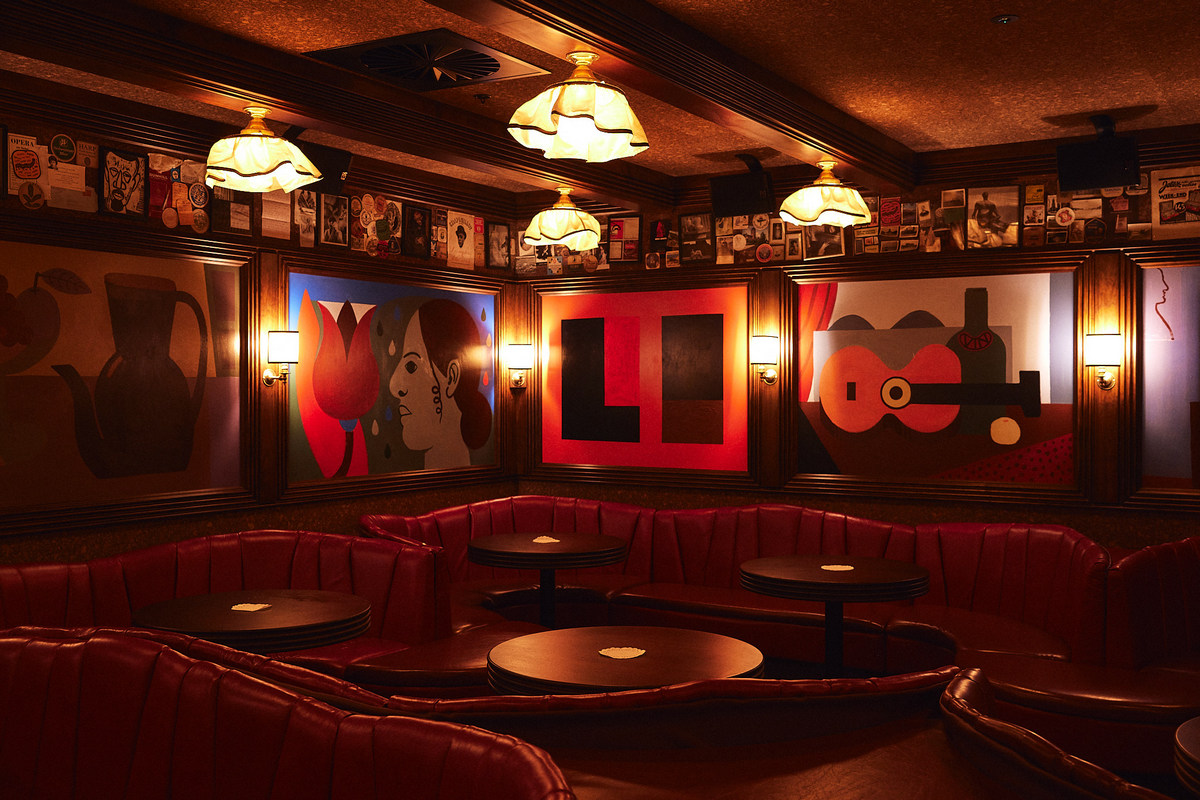
Do you feel the pressure and expectations when you open a new venue because your standards are so high? Does the pressure weigh on you?
Anton: I think our own pressure to be excellent is kind of enough. Of course, we want the venue to be well-received and we want people to love them but we want to love them so much first.
Toby: I think if you don’t feel any pressure then there’s something wrong with you. I think a bit of pressure is good. Yes, the expectations are high, but I think they’re even higher from ourselves.
Toby, in terms of City of Sydney talking a lot about reviving Sydney nightlife, how has this impacted the venues, if at all?
Toby: Yeah there are a lot more grants and support out there. Michael Rodriguez is doing a lot of good work. We’ve always loved having late-night venues. We open our venues consistently, we open them 7 nights a week until 3am. The more people that get on that bandwagon, the better for the nighttime economy. There is definitely more support out there and there is lots happening but I think it’s just going to take time.
“I think that we like to create venues that we want to visit and go to. I feel like we create them because they don’t exist in Sydney, and they are our hospitality fantasy places that we want to go to.” – Anton
Would you guys ever look at sites outside of the city?
Toby: We generally want to stay around the CBD, Surry Hills as we much prefer it. It’s just kind of where we are and all our venues are walking distance from each other which makes it a lot easier to manage.
Anton: Plus we have this captive market of office workers, there are hundreds of thousands of people surrounding us whereas in a suburban area, you can’t get that. In the city you can get a late night venue which you know you can get a DA approved for and then you’ve got this market of people who want to drink and eat and relax.
Toby: And in terms of getting any license extensions and approvals and stuff, it’s now much better. It’s a different world actually.
Anthony, you’ve opened two venues in 12 months. How hard has that been to fill job roles? Did you push back on trying to open two venues in a year?
Anthony: We set ourselves a pretty big challenge and it was a hard 2023. But finding the right people is always a big challenge whether you’re opening one venue or two it’s hard to find people who fit the culture and values and are around. There are a lot of places opening and competing for really good people so we just do our best to make the business as attractive as possible from an employee’s standpoint. It was hard but we get a lot of referrals from our current staff.
With those staff, how much is it training versus knowledge they already have?
Anthony: Say for Baxter for example, a knowledge of whisky is an advantage but it’s not essential. We can always teach that. We hire people of all skill levels. As I said, it always comes back to the values and how they present in the interview. People that start at any level can be trained up. If you look at our management team, 90 per cent of them have been promoted from within. Progression is a really big part of our group and a lot of our staff have been with us for five, six or seven years. The training that comes along with that of course is very comprehensive within the venues themselves.
Jordan, for so many years you were the rockstar, backbone of Frankie’s, how has it been since Frankie’s closed? Do you still bring your big fun personality to the group?
Jordan: (jokes) A lot of maturity has occurred! I was expecting a little bit of a crisis of identity after Frankie’s closed but it was quite good for me in terms of expanding horizons and tastes. If life’s a palate, I want to be painting with a shit load of colours. When you’re cornered into the rock ‘n’ roll realm there’s only so far you can go. It’s actually just been so seamless and there is always so much happening in this company. I’m just inspired by everyone at this table, if there’s something to discuss you’re going to get a different viewpoint from every character.
“I think one of the most important things that Swillhouse has always done is that we greet people in a very beautiful manner… The whole environment is designed to deliver a beautiful customer experience.” – Stefan
It feels like there is a six-degrees of Kevin Bacon with Swillhouse and so many venues that have come from former staff – from Caretaker’s, to Earl’s Juke Joint and beyond. How do you feel about that?
Stefan: It’s actually quite humbling. A lot of these guys we worked with for so many years, we’ve shared so many incredible moments building venues, cocktail lists etc. To see them fly and do their own thing, it’s been amazing.
Toby: We owe a lot to them also for helping us to get where we are today.
In terms of health and wellbeing I know you’re quite into your health and fitness, with your martial arts, how do you get that balance?
Anton: As you get older, it’s pretty unsustainable to live as hard and fast as you did when you were younger. Martial arts has always been one of my big passions and something I love. Having something outside of the realm of hospitality, which can be all-encompassing and all-consuming, is a godsend. It’s somewhere I can go to not think about work at all. When someone is trying to strangle you or box your head in, you’ve got different things to worry about. Your priorities change instantly. It can take you out of whatever funk you’re in. I have a holistic approach to my life – whether that’s seeing a psychologist, or reading books about health, reading literature. It’s all part of becoming a complete human being. If you’re only singular focus is hospitality it can be pretty limiting and makes for a pretty boring dinner conversation. Any successful person that I know has something else that they do.
“You can think of an interview and a dinner table as a similar scenario. It can sometimes be a very awkward experience, and it shows a lot about someone how much they can relax and get to know you within 30 seconds…” – Anthony
Are there people and venues that have inspired you over the years?
Anton: Le Corbusier, the architect, he’s amazing and the work that he has done. Keith McNally [influential restaurateur in New York behind the Minetta Tavern, Odeon, Balthazar brasserie, and Pastis], all of his venues I’m obsessed with, it’s that kind of escapism that he creates. I also love different authors like Murakami. I find life, art and culture all play a part to influence and create our concepts.
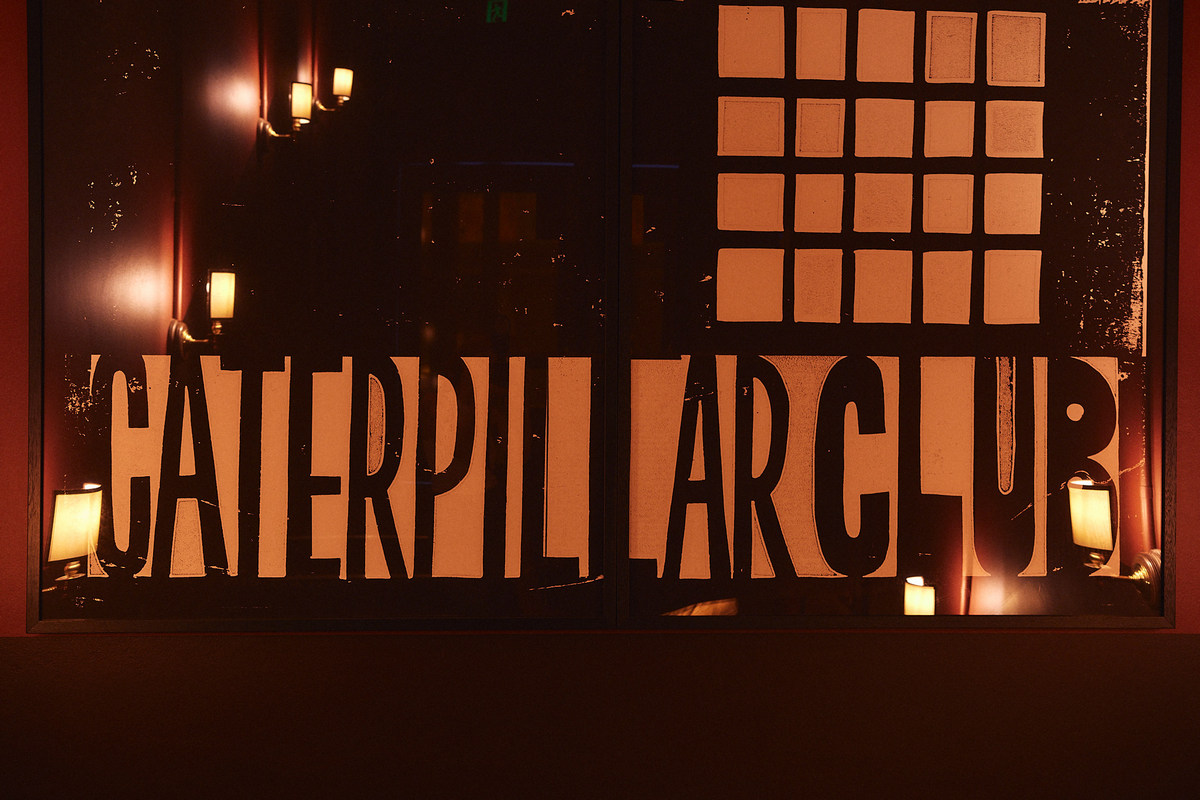
Stefan, in terms of 2024 what is the plan for Swillhouse?
Stefan: This year’s for relaxing! Nah, seriously, 2023 was pretty tough. We’ve all decided that we’re going to focus on the venues that we have, make Caterpillar perfect and Le Foote. There’s still a lot of work to do. It takes a long time; I reckon it took three years to get Hubert to where it is now. I think with any good venue you’ve got to keep working on it, make small tweaks, get the entertainment right, get the food and drinks right. Everything’s good but we’re striving for it to be perfect.
Final question to all of you. If you could speak to your younger self, say ten to 15 years ago, what piece of advice would you give yourself?
Anton: You’re so good looking. Ha.
Toby: Back to when I started working with Anton…? Run! …. No, seriously, it doesn’t have to be perfect. You just need to keep striving and it takes years to bed in a venue and get it right. So on opening, don’t sweat the small stuff. All the best laid plans can fly out the window when the first person walks through the door. Get the doors open and you can keep making changes as you go.
Stefan: Slow down a little bit, take your time.
Anthony: Keep your eye on the big picture and don’t sweat the small stuff as much.
Jordan: Work hard, play hard.
Did the Jordan of 15 years ago not think like that?
Jordan: It was already instilled in my DNA but the work hard bit was somewhere buried deep down!
The full video of this interview will be uploaded to australianbartender.com.au shortly, so stay tuned.

